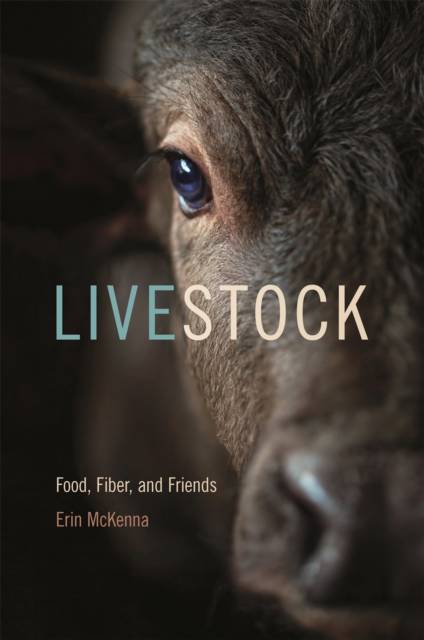
- Retrait gratuit dans votre magasin Club
- 7.000.000 titres dans notre catalogue
- Payer en toute sécurité
- Toujours un magasin près de chez vous
- Retrait gratuit dans votre magasin Club
- 7.000.0000 titres dans notre catalogue
- Payer en toute sécurité
- Toujours un magasin près de chez vous
Description
Most livestock in America currently live in cramped and unhealthy confinement, have few stable social relationships with humans or others of their species, and finish their lives by being transported and killed under stressful conditions. In Livestock, Erin McKenna allows us to see this situation and presents alternatives. She interweaves stories from visits to farms, interviews with producers and activists, and other rich material about the current condition of livestock. In addition, she mixes her account with pragmatist and ecofeminist theorizing about animals, drawing in particular on John Dewey's account of evolutionary history, and provides substantial historical background about individual species and about human-animal relations.
This deeply informative text reveals that the animals we commonly see as livestock have rich evolutionary histories, species-specific behaviors, breed tendencies, and individual variation, just as those we respect in companion animals such as dogs, cats, and horses. To restore a similar level of respect for livestock, McKenna examines ways we can balance the needs of our livestock animals with the environmental and social impacts of raising them, and she investigates new possibilities for human ways of being in relationships with animals. This book thus offers us a picture of healthier, more respectful relationships with livestock.Spécifications
Parties prenantes
- Auteur(s) :
- Editeur:
Contenu
- Nombre de pages :
- 264
- Langue:
- Anglais
- Collection :
Caractéristiques
- EAN:
- 9780820351919
- Date de parution :
- 15-03-18
- Format:
- Livre broché
- Format numérique:
- Trade paperback (VS)
- Dimensions :
- 197 mm x 234 mm
- Poids :
- 430 g

Les avis
Nous publions uniquement les avis qui respectent les conditions requises. Consultez nos conditions pour les avis.






